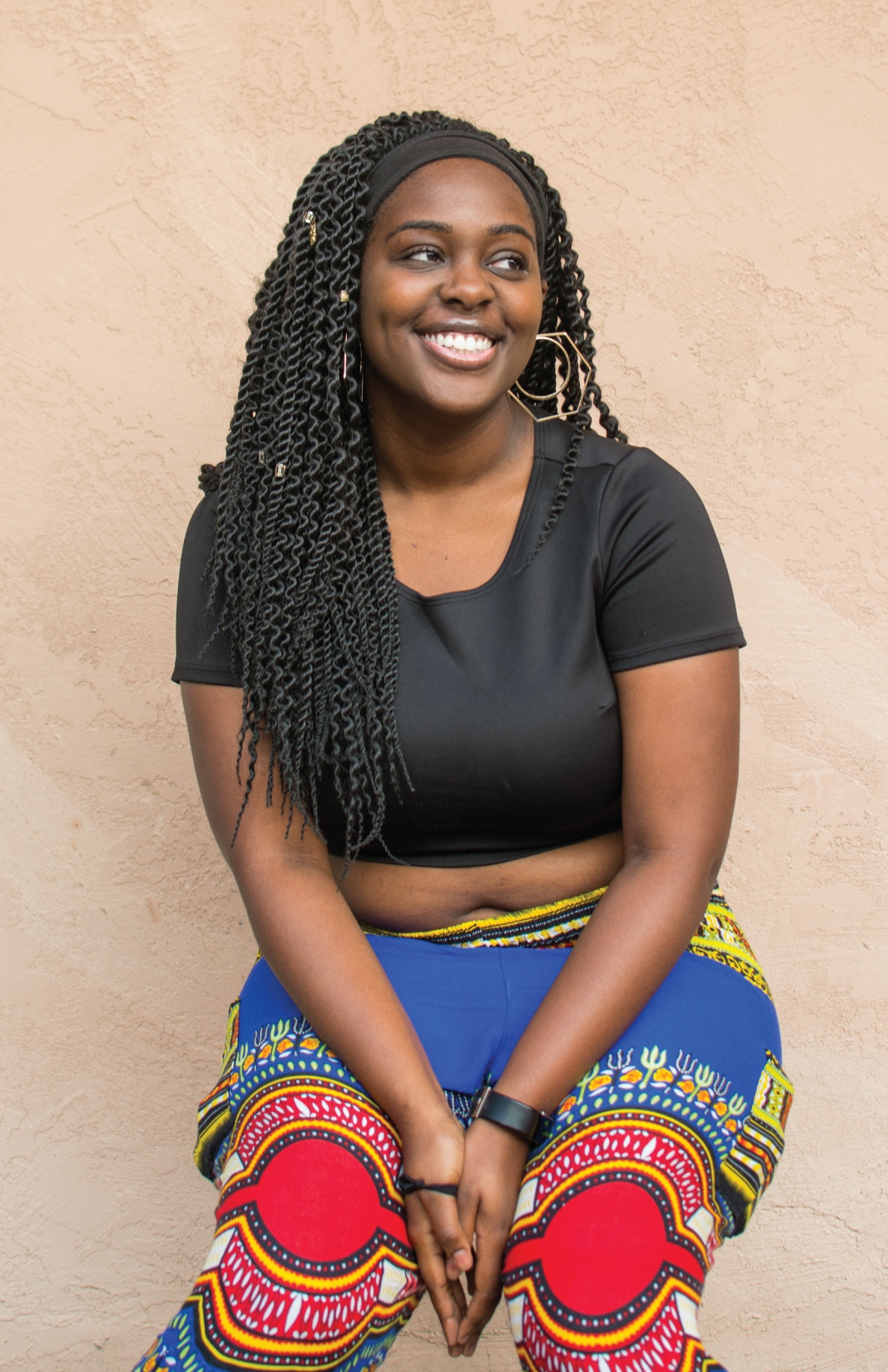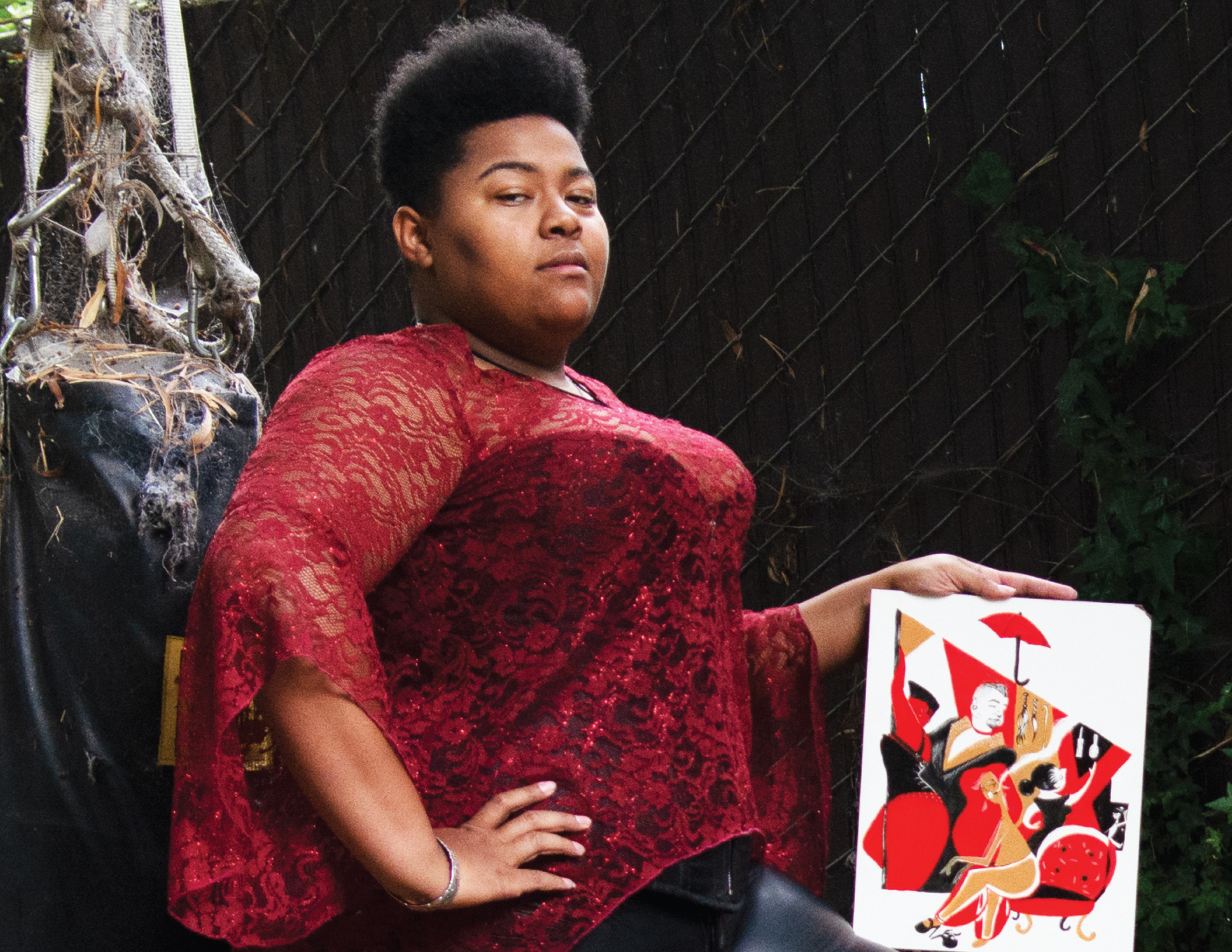WOMXN
Femme Voices: Have you heard of Emotional Labor?
■ KEAO LANI EDITOR

NELLY 24, Designer Black Queer Woman
“I am clever, witty, and conscious of my existence while navigating spaces. I am also positively pessimistic. A cynic who laughs.”
Photo: Dominick Hildebrand
Emotional Labor is a term women use to describe the baggage we all carry into a new relationship and/or dynamics. We never really talk about it. In our maiden edition of this topic, I chatted with Nelly who calls this a phenomenon that is widely known to women of color as being second nature. Let’s dive into how one person navigates her daily life with this concept.
What does emotional labor look like for you being someone who is on this journey and holding all of your identities? I think emotional labor is synonymous with being a Black woman or a woman of color, to be honest. At least for me, I am an empath; When someone tells me a story about something traumatic that has happened to them, I can feel their energy and I take on that pain, too. Not that I have to, but it has been historically and systematically ingrained within me. Within Western cultural social norms, Black women are seen as very emotional creatures who are very passionate, angry, and loud; As someone who is volatile, fully feeling being. On the other spectrum, people who are men or men-identifying are not in their territory to claim or express emotions. So as women, we take on that role but what comes with that role is not just our own emotions (trying to understand those trying to pick the time and place where we CAN express our emotions) but also understanding and helping others with their emotions. We are expected to put our emotions and traumas on the back burner in order to help others decipher and understand their feelings. It sucks.
What is the aftermath of doing this emotional processing with others, but not having the time for yourself? I had a panic attack on BART once and started hyperventilating. I was with my partner at the time and they were shocked; they had no idea what to do. I didn’t know why that happened. I knew I was physically safe and sitting on the train, but my body for some reason was vibrating with, “You’re in danger!” It was like an accumulation of all the things I was holding on to, the emotions I repressed when everyone else was unloading on me, finally coming out. My mental and emotional health was something I neglected, but now I actively make the time for it. We give everyone else validation and reassurance that it is okay, but no one does that for us in return. And when we do with therapists, they clap their hands together and congratulate us on being “so reflective!” There is never really a moment to be carefree and Black. Or carefree and a woman. Or carefree and queer. Whether it be helping someone, being an activist or educator, you are always “on” and it seems there is never really any time for yourself. That is why self-care is so important. I’ve been actively working on this by going to therapy and truly trying to feel and do for myself what I do for others. It isn’t easy but I do it anyway.
How do you process and move on from your therapist giving you that type of response? What do you do with that? It’s like a double-edged sword: On one hand, unpacking all of this baggage is good for realization, but on the other, just reflecting on it is not helping me. Congratulating me on being self-aware isn’t helping me either. I want to take action. Cognitive behavior coping skills and tools have been helpful, but at the same time, that recognition of “Hey, what you went through is a BIG deal and you’re getting yourself out of it” is a tremendous feat.
What steps do u take to deal with emotional labor? Giving myself more grace. It’s very hard. I am not the kind of person that vocalizes self-deprecating thoughts, but I do think about them a lot. Step One is redirecting thinking. Step Two is identifying why I do or think self-harming things. Instead of doing something drastic like giving myself bangs (no shade), I will stop and ask, Why am I doing this? What are the underlying problems I am dealing with? Step Three is adapting healthier coping mechanisms. Instead of gravitating toward something that will give me instant gratification, I focus on things that have a long term benefit.
When navigating relationships and different dynamics, communication is a big thing. Unpacking your baggage in a safe and healthy way is important to strive for. When it comes to dichotomies, expressing differences is the foundation to a strong unified community. Above all, self-care and self-love is not selfish. Make sure you take care of yourself first.





